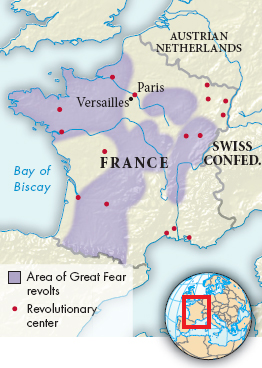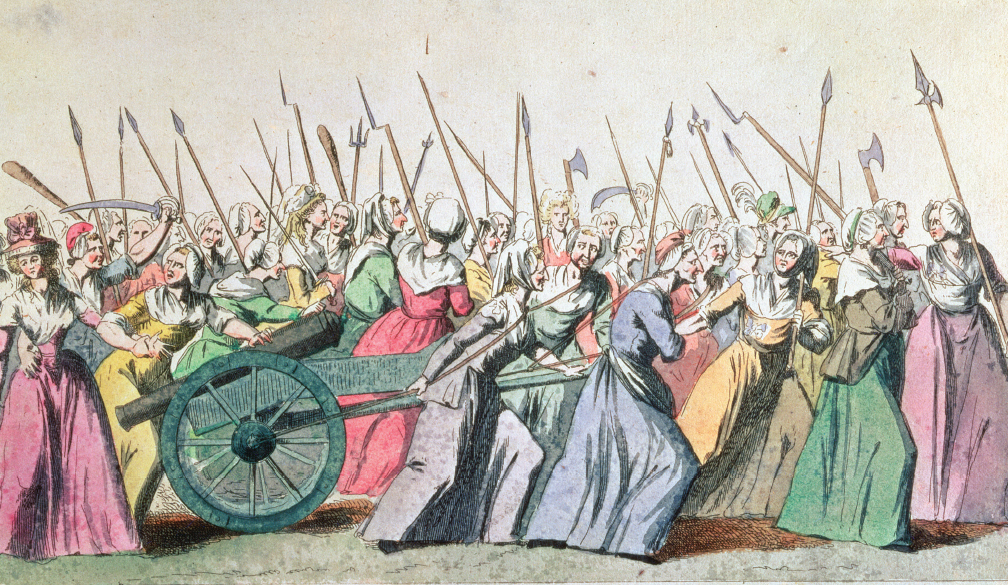Popular Uprising and the Rights of Man
While delegates at Versailles were pressing for political rights, economic hardship gripped the common people. Conditions were already tough due to the disastrous financial situation of the Crown. A poor grain harvest in 1788 caused the price of bread to soar, and inflation spread quickly throughout the economy. As a result, demand for manufactured goods collapsed, and many artisans and small traders lost work.

Against this background of poverty and political crisis, the people of Paris entered decisively onto the revolutionary stage. They believed that, to survive, they should have steady work and enough bread at fair prices. They also feared that the dismissal of the king’s liberal finance minister would put them at the mercy of aristocratic landowners and grain speculators. At the beginning of July, knowledge spread of the massing of troops near Paris. On July 14, 1789, several hundred people stormed the Bastille (ba-
Just as the laboring poor of Paris had been roused to a revolutionary fervor, the struggling French peasantry had also reached a boiling point. In the summer of 1789, peasants throughout France began to rise in insurrection against their lords. In some areas, peasants reoccupied common lands enclosed by landowners and seized forests. Fear of marauders and vagabonds hired by vengeful landlords — called the Great Fear by contemporaries — seized the rural poor and fanned the flames of rebellion.
Faced with chaos, the National Assembly responded to peasant demands with a surprise maneuver on the night of August 4, 1789. By a decree of the Assembly, all the old noble privileges were abolished along with the tithes paid to the church. From this point on, French peasants would seek mainly to protect and consolidate this victory.
Having granted new rights to the peasantry, the National Assembly moved forward with its reforms. On August 27, 1789, it issued the Declaration of the Rights of Man and of the Citizen. This clarion call of the liberal revolutionary ideal guaranteed equality before the law, representative government for a sovereign people, and individual freedom.
The National Assembly’s declaration had little practical effect for the poor and hungry people of Paris. The economic crisis worsened after the fall of the Bastille. Aristocrats fled the country, and the luxury market collapsed. Foreign markets also shrank, and unemployment among the working classes grew. In addition, women — the traditional managers of food and resources in poor homes — could no longer look to the church, which had been stripped of its tithes, for aid.
On October 5, some seven thousand women marched the twelve miles from Paris to Versailles to demand action. This great crowd, “armed with scythes, sticks and pikes,” invaded the National Assembly; forced their way into the royal apartments; killed some of the royal bodyguards; and searched for the queen, Marie Antoinette, who was widely despised for her frivolous and supposedly immoral behavior. The only way to calm the disorder was for the king to live closer to his people in Paris, as the crowd demanded.
Liberal elites brought the Revolution into being and continued to lead politics. Yet the people of France were now roused. They would henceforth play a crucial role in the unfolding of events.
